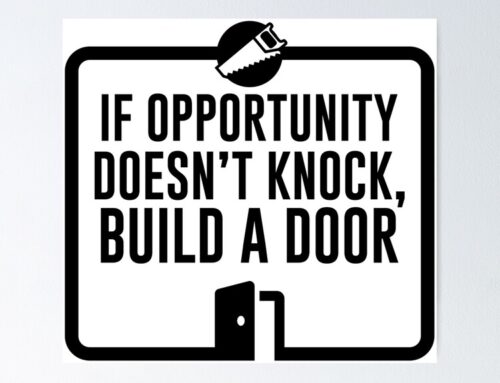Crossed arms, heavy sighs, short replies — you know when a prospect’s getting frustrated. Worse, these physical signs show they’re losing interest in what you’re saying, and your shot at earning their business might be fading fast.
Often, difficult or even angry prospects aren’t expressing frustration with you. These emotions are tied to external situations and psychological stimuli. So, put your great communication skills to work, draw on your sales superpower of reading the room, and use these seven psychological tips for managing difficult prospects to save your deal.
7 Psychological Tips for Dealing with Difficult Prospects
1. Practice reflective listening
When you’re upset, has someone saying, “I understand,” ever made you feel better? I didn’t think so. Plus, this kind of broad statements isn’t accomplishing anything. Take the following scenario:
Prospect: “I’m frustrated because we have a limited budget and you’re unwilling to negotiate enough on price.”
Salesperson: “I understand, but …”
You know the conversation above isn’t going to end well.
Instead, practice reflective listening. This approach requires you understand what the other person is saying by interpreting their words and their body language. Then, respond by reflecting the thoughts and feelings you heard back to your prospect:
Prospect: “I’m frustrated because we have a limited budget and you’re unwilling to negotiate enough on price.”
Salesperson: “So, what I’m hearing is that our pricing is a barrier for your business. Your budget is tight, and I’m not successfully negotiating a price that meets your needs. Is that correct?”
If you’ve adequately understood their sentiment, move on. If not, say, “Tell me more, so I can better understand.” Never promise you’ll fix the situation — because you might not be able to. Your goal in this moment is to make your prospect feel heard and valued.
2. Consider their affect heuristic
The affect heuristic is a mental shortcut. It helps you make quick, efficient decisions based on how you feel toward the person, place, or situation you’re considering. Put simply, it’s the fact that we all made decisions and judgements based on our worldviews and experiences. It’s our bias.
In these situations, objective facts carry little weight for us. Instead, we run the decision or situation through our internal “software” and develop our own opinions based on what we already know.
If you prospect keeps asking, “What’s the catch?” and delaying the sales process with legal questions and endless due diligence, it might not be helpful to say, “Your lawyer has already given you the all-clear. Can we move forward?”
Your prospect could have unknowingly been trapped into a year-long contract with a vendor who did not deliver on their promises. Because of that experience, your prospect is now viewing you through that lense.
Ask questions to understand the root cause of their apprehension. The questions below can help your prospect relax, and yield insights into why they’re unwilling to move forward:
- “I’d like to understand. Tell me more about why you’re skeptical.”
- “What can I do to relieve your fears?”
- “How can I help you feel comfortable enough to move forward?”
These questions also redirect the customer mind from thinking you’re untrustworthy to proactively considering what they need in order to move forward.
3. Tap into the beginner’s mind
The beginner’s mind — also known as the zen mind — is the strategy of approaching every situation as if you were a beginner. When you adopt this way of thinking, you enter every conversation with the “don’t know” mind, which keeps you from prejudging a prospect or their situation.
It also encourages you to live without “shoulds.” These are nagging thoughts like:
- The prospect should have already known they wouldn’t have budget until next quarter.
- The prospect should have read my email about their discount expiration.
- The prospect should not have assumed I would negotiate to meet such a low budget.
“Shoulds” put your mind on the defensive and jeopardize the productivity of the conversation before it even begins.
The zen mind also means you let go of being an expert. Sure, you’re an expert in your product/service, and you might be an expert in selling, but you’re not an expert in this prospect, their situation, or the conversation you’re currently engaging in.
So, instead of saying, “You told me you wanted to close at the end of this month,” approach each conversation with the beginner’s mind. Don’t prejudge your prospect’s frustration, forget about what they should have done, and view each conversation as a new puzzle to be solved.
4. Let go of fear
Fear of a negative outcome drives many of our reactions. Commonly, fear makes us want to control things. If a prospect is being difficult, we’re afraid to challenge them because we might lose the deal. If they express displeasure with your timeline or pricing structure, we’re afraid because we might not be able to fix the situation.
First, let go of the idea that you need to fix anything. When sitting down with a difficult prospect, your job is to listen, understand, and discern next steps — not to immediately produce a solution.
So, instead of apologizing, slapping together a mediocre fix, or validating feelings, say, “It’s unfortunate X happened. I’m aware how this is affecting your business, and I appreciate your patience as I work to resolve this matter.”
5. “Chunk” the problem
Chunking is the process of taking one big problem and breaking it into several smaller, more manageable portions. These small portions are easier for us to tackle, and make us more willing to begin dealing with the issue at hand. Many people use chunking to organize their daily tasks. It’s equally helpful when managing challenging problems.
Does your prospect always have a reason they can’t sign the contract? At your next meeting, ask them to help you break down each of the final steps you need to take to get that contract signed. Simply seeing each task chunked can make it easier for your prospect to digest what’s left to do.
6. Remember, anger is natural
How to Deal with Angry Customers
Remain calm, actively listen to your customer, and repeat back what you hear them say. Once they’ve finished, thank them for communicating their frustration, and explain you’ll get back to them with a solution. Your customer will have time to cool off, and you can speak to your manager about next steps.
Ever throw out a price and watch your prospect become frustrated, maybe even angry, at how high it is? Or maybe you’ve been on the other side. A prospect tells you how much they want to pay for your product, and it’s so low it makes you mad.
The Recalibration Theory of Anger says this emotion is naturally wired into humans. In short, anger is our evolutionary way of bargaining. We furrow our brows, press our lips together, and flare our nostrils in to drive our “opponent” to place a higher value on what we have to offer.
When faced with an angry prospect, avoid the (natural) tendency to justify your position. Instead, understand your prospect is merely feeling undervalued and attempting to control the situation.
First, stop selling. Now’s not the time to move the deal forward. Take your prospect’s frustration seriously, but not personally. Remain calm. And actively listen to what your prospect say. When you’ve confirmed you understand their frustration, thank them for communicating it, and tell them you’ll get back to them with a solution.
When a prospect’s angry, it’s possible no solution will make them feel better. Give them time to cool off, and consult with your sales manager on the best way forward.
7. Keep calm and carry on
Conflict is part of business. How you react under fire impacts the future of your prospect and client relationships.
The adage, “the client is always right” still rings true. As a salesperson, you have far more to lose by taking the low road and stooping to a client’s level of hostility.
Treating someone with disdain or disrespect can reflect negatively on you and your company, so reputation management should always be top of mind.
Remember, people will often mirror the emotional signals you emit. If you respond with hostility and anger, don’t expect friendliness and understanding in return.
Emotional intelligence can be used to calm the storm, so use these tips for navigating your next conflict:
- Maintain a calm and professional tone while also remaining assertive.
- Refrain from name calling or finger pointing.
- Never say or write anything that can be used against you.
- Always resolve disputes in person or over the phone. Email is not an effective tool for hashing out disagreements.
HubSpot Director of Sales and 30-year sales veteran Dan Tyre says, “Dealing with difficult prospects is a fact of Sales life. If you’re average, you’ll fall prey to emotion. If you’re great, you’ll realize the opportunity and raise your game. Lean in, understand where your prospect’s coming from, listen closely, and have empathy.”
Be great today, and use these tips to communicate with difficult prospects.
Written By: Meg Prater @Meg_Prater

206-391-5682
i2i@i2idirectmarketing.com
www.i2idirectmarketing.com
“…all deliveries GPS tracked…”




